With their rise in popularity across various industries, from consumer electronics to healthcare, one might wonder: What makes silicone rubber keypads the preferred choice? This article delves deep into the reasons behind the increasing preference for silicone keypads in industrial applications and why they might just be the better option for your next project or product.
Customization
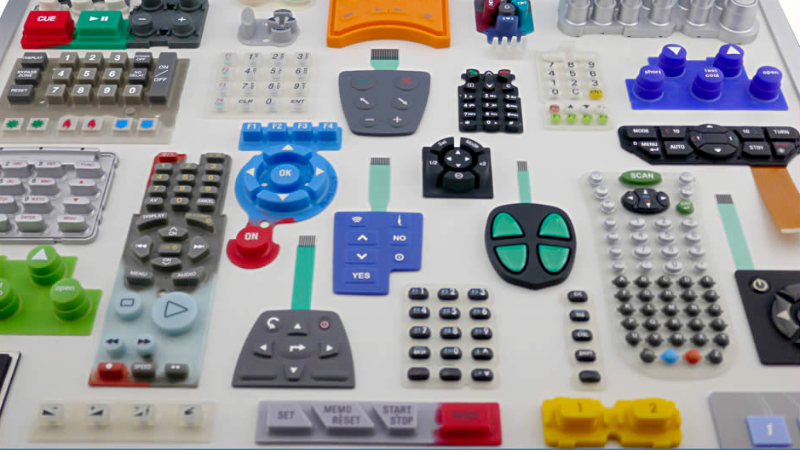
Silicone rubber keypads include video and HIFI units, remote controls for TV, electronic games and toys, and industrial control equipment. They offer a wide range of customization options, making them a better choice for various applications. With their design flexibility and manufacturing capabilities, silicone rubber keypads can be tailored to meet specific requirements and enhance the functionality of products.
Available in different colors and shapes
One of the key advantages of silicone rubber keypads is their ability to be produced in different colors and shapes. This allows developers and designers to match the keypad with the overall product design or create a visually appealing contrast. Whether it’s vibrant hues or subtle shades, silicone rubber keypads can be customized to suit any application.
Can incorporate logos or symbols on keypads

To add branding or improve visibility, a silicone rubber keypad can easily incorporate logos or symbols. This customization option helps companies promote their brand identity while providing an intuitive interface for users. By incorporating recognizable icons or logos onto and backlighting the buttons, users can quickly identify functions without confusion.
Buttons can be designed with varying sizes and textures
Silicone keypads offer flexibility. They can be designed with varying sizes and textures, allowing for easy differentiation between buttons even in low-light conditions. The tactile feedback provided by these textured buttons enhances user experience and reduces errors caused by accidental presses.
Eco-Friendly

In an era where sustainability and environmental considerations are paramount, silicone keypads emerge as a front-runner. Silicone, as a material, has several environmentally friendly attributes:
- Biodegradable Over Time: Unlike certain plastics and other materials, silicone breaks down over time, reducing its environmental footprint.
- Durable and Long-lasting: The unique composition of silicone keypads means this material is resistant to things like weather, damage, extreme temperatures, and chemical exposures. The longevity of silicone means less frequent replacements, leading to reduced waste. The resilience of silicone ensures that devices last longer and don’t need to be discarded prematurely.
- Less Resource-Intensive Production: The manufacturing process of silicone keypads is less resource-intensive compared to other materials. This means a lower carbon footprint during their production.
- Non-toxic: Silicone doesn’t release harmful chemicals when broken down, ensuring that it doesn’t contribute to pollution or harm aquatic life when disposed of.
By choosing silicone keypads, manufacturers not only provide their users with a high-quality tactile experience but also make a conscious decision to move towards a more sustainable and eco-friendly future.
Safety and Cleanliness
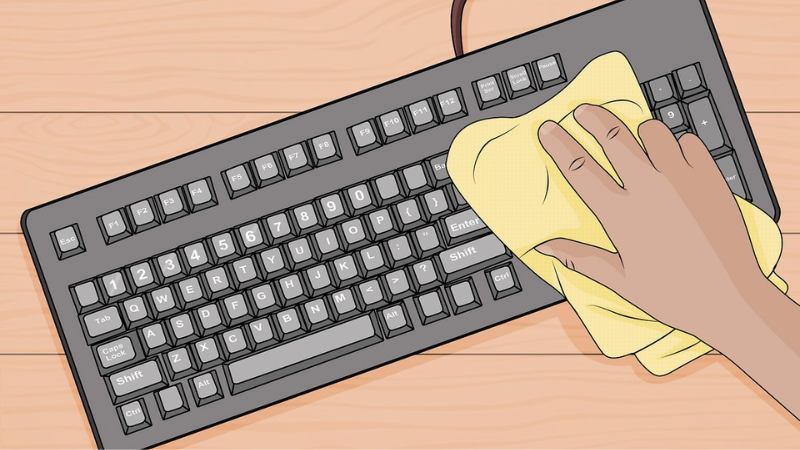
When it comes to electronic devices and their components, safety and cleanliness are paramount. Silicone keypads excel in these areas for a multitude of reasons:
- Hypoallergenic: Silicone is a hypoallergenic material. This means that it is unlikely to cause allergic reactions, making it suitable for users with sensitive skin or allergies.
- Resistant to Microbial Growth: One of the standout features of silicone is its resistance to bacteria and mold growth. This is especially important for devices that are frequently handled, ensuring that they don’t become breeding grounds for germs.
- Easy to Clean: The smooth surface of silicone keypads allows for easy cleaning. Dust, dirt, and spills can be effortlessly wiped away, maintaining the keypad’s pristine appearance and hygiene.
- Non-conductive: Silicone is a poor conductor of electricity. This inherent non-conductivity enhances the safety of electronic devices by reducing the risk of short circuits or electrical mishaps.
In an age where hygiene and safety have taken center stage, silicone keypads offer peace of mind, ensuring that the devices remain clean, safe, and function optimally over time.
Tactile Feedback for Enhanced User Experience
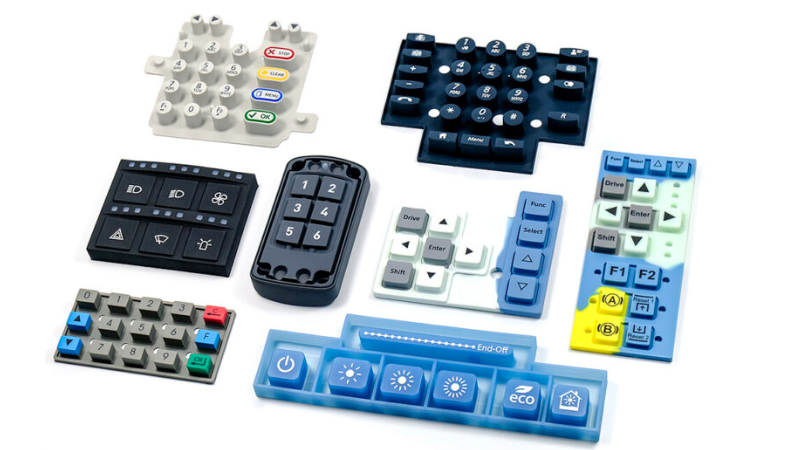
Silicone keypads offer a better choice for those seeking an enhanced user experience. With their soft yet responsive buttons, these keypads provide tactile feedback that greatly improves the overall usability of various user interfaces.
The tactile response of silicone keypads plays a crucial role in enhancing typing accuracy. When users press the buttons on these keypads, they receive immediate feedback through touch. This feedback helps them gauge whether their input has been registered correctly or not, reducing the chances of errors and improving typing speed.
Moreover, the tactile feedback provided by silicone keypads contributes to a satisfying user experience. The physical sensation experienced when pressing these buttons adds an extra layer of engagement and interactivity. Users can feel the button depress under their fingers, creating a sense of assurance and confidence in their actions.
Moisture Resistance for Longevity
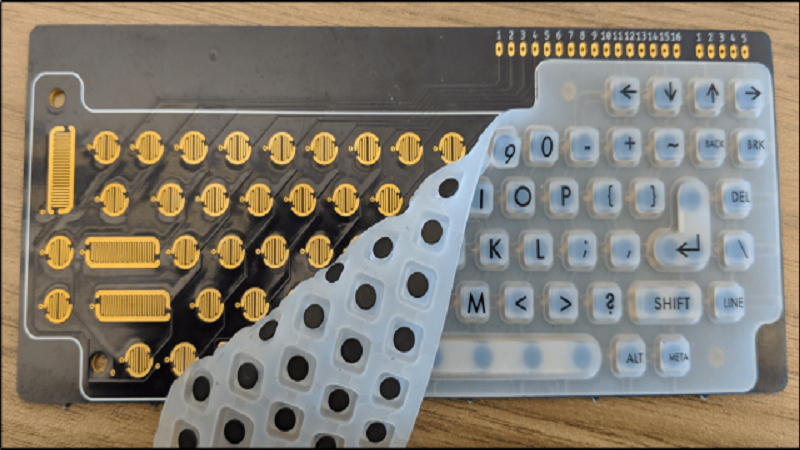
One of the significant challenges that electronic devices face, especially those with keypads, is the threat of moisture infiltration. Be it due to accidental spills, ambient humidity, or use in damp environments, moisture can quickly degrade the performance of a keypad and the electronic device it serves. Here’s why silicone keypads stand out in terms of moisture resistance and, consequently, longevity:
- Inherent Waterproof Nature: At its core, silicone is a hydrophobic material, meaning it naturally repels water. This makes silicone keypads intrinsically resistant to water and other liquids, ensuring that accidental spills don’t immediately lead to malfunctions.
- Protective Sealant: Silicone keypads can be designed with integrated seals or gaskets that provide an additional barrier against moisture. This design prevents any liquid from seeping into the electronic components underneath.
- Unaffected Performance in Humid Environments: Whether it’s tropical climates, industrial settings with high humidity, or just a steamy kitchen, silicone keypads continue to function optimally without the moisture in the air affecting their performance or tactile feedback.
- Easy Cleaning and Maintenance: Given their moisture-resistant nature, silicone keypads can be easily cleaned with damp cloths or disinfectant wipes without the risk of water damage. This not only ensures hygiene but also extends the keypad’s lifespan by preventing a buildup of contaminants.
In an age where durability and longevity are paramount for electronics, the moisture-resistant properties of silicone keypads offer a clear advantage. They promise not just an extended lifespan for the keypad itself, but also for the entire device it serves.
Ergonomics: Comfort and Efficiency
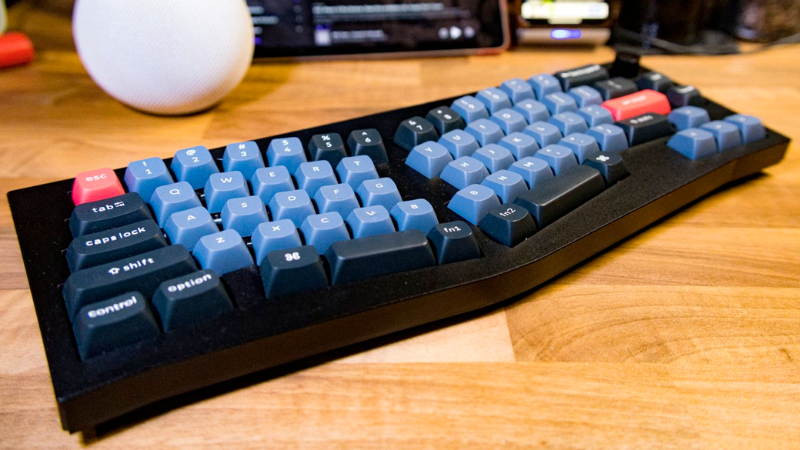
In the realm of keypad design, ergonomics isn’t just a buzzword; it’s essential. Silicone keypads, known for their inherent flexibility and adaptability, shine in ergonomic considerations.
Their malleable nature allows them to mold to the natural contours of human fingers, providing a soft, cushioned feel that reduces finger fatigue during prolonged use. This soft touch, combined with their ability to remain temperature neutral and their non-slip surface, ensures that users have a comfortable and efficient experience.
In today’s digital age, where device interaction is frequent and extended, the superior ergonomic qualities of silicone keypads offer a significant advantage in user comfort and productivity.
Why Choose Silicone Keypads?
In an era where technology and user interface intermingle daily, the importance of a robust and user-centric keypad cannot be overstated. Silicone keypads have steadily emerged as the preferred choice for many industries, and with good reason. From their eco-friendly makeup and assured cleanliness to their unmatched tactile feedback and ergonomic design, they cater to modern demands impeccably.
Conclusion
As our reliance on gadgets and interfaces grows, so does the need for durable, comfortable, and reliable keypads. By choosing silicone keypads, businesses are not only investing in a superior product but also prioritizing user comfort and overall satisfaction. In a competitive landscape, it’s these subtle nuances in user experience that often make a world of difference.
Experience the Silicone Advantage with Hongju
Ready to elevate your product’s user experience? Dive into the world of silicone keypads with Hongju. We only deliver top-notch quality silicone keypads and membrane switches designed at our own factory! Our expertise and commitment to quality ensure that you get nothing short of the best.
Send Your Inquiry Now!
Quality Meets Affordability. Inquire Now for High-Quality Products at Low Volumes.